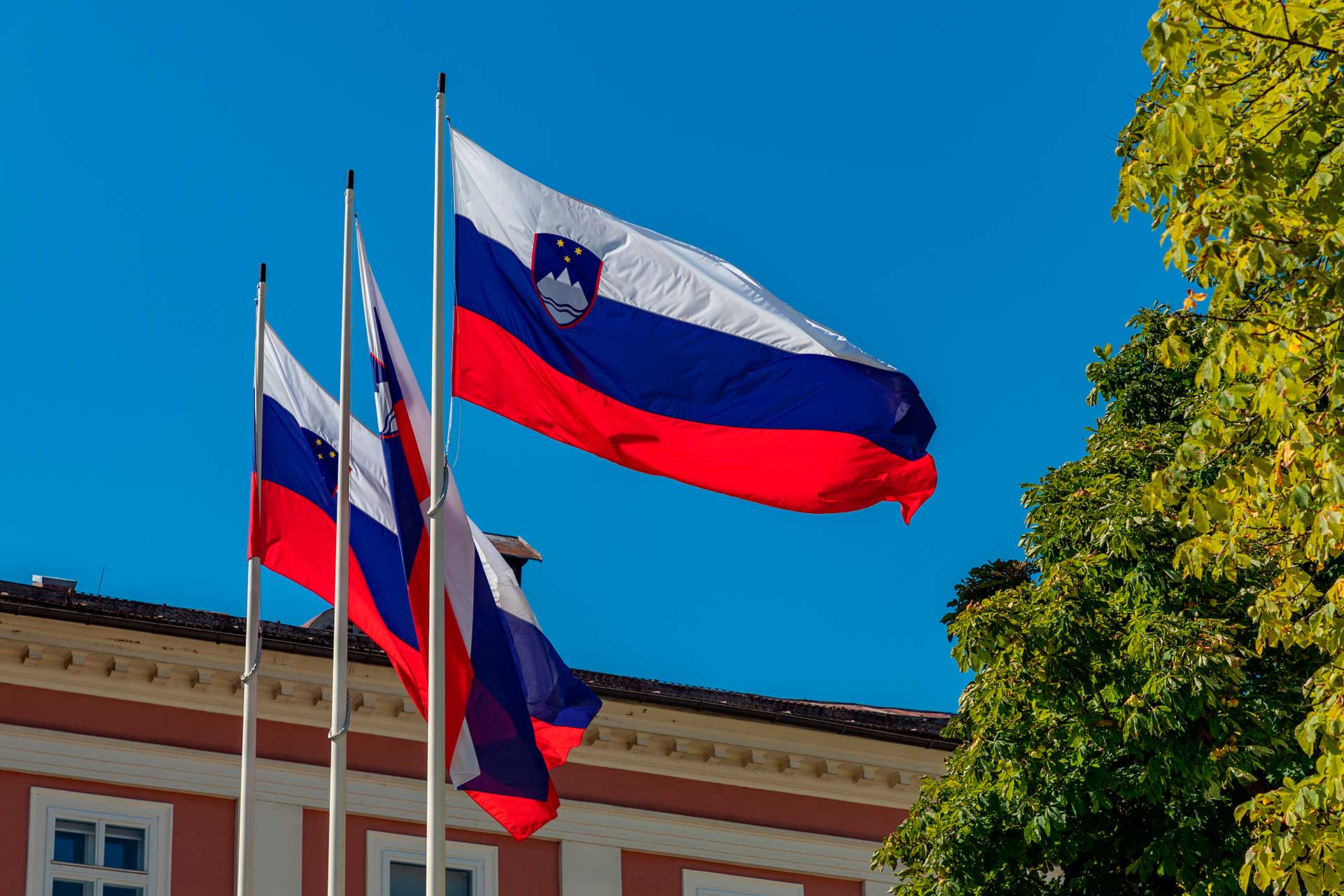Polish citizenship: how to apply for foreigners in 2025
Polish citizenship opens access to a large number of opportunities offered by the EU passport....

Most often, people seek Slovenian citizenship because of the privileges they receive as a result. With a passport of an EU state, it is possible to bring business to new markets, acquire career prospects, travel without a visa almost all over the world, participate in EU grant and scholarship programs. Second citizenship is also useful in terms of possible immigration, for example, to move to the European Union for permanent residence together with close relatives without additional conditions.
A passport of the Republic of Slovenia according to the standard procedure for foreigners can be issued to a person who has been a resident of the Republic of Slovenia for ten years or more and has successfully integrated into society. The period of residence is shortened for refugees, stateless persons and spouses of Slovenes. There is also a simplified program for repatriates.
Relocation Compass international law experts can help you determine the best way of acquiring citizenship in Slovenia. With their help you can get a European Union passport within 4 to 12 months.
The conditions for granting Slovenian citizenship are listed in the national act “O državljanstvu Republike Slovenije”. Additional provisions, important in particular for naturalization, are listed in the legal act “O tujcih” of 15.06.2011 with subsequent amendments.
In general, the migration policy of the Republic is relatively loyal, for example, there are no annual quotas for the number of residence permits issued, as in Estonia. On the other hand, the law “On Citizenship” requires to give up the native passport when naturalizing in Slovenia, which is not suitable for everyone. However, this rule does not apply to repatriates.
The following persons may apply for a Slovenian passport:
The basic prerequisite for Slovenian citizenship is proof of belonging to the country and its society, e.g., ethnic or due to long-term naturalization. You will also need to:
The required dossier depends on the grounds on which you want to apply for a Slovenian passport. The basic list of documents is as follows:
Additional documents and requirements for the applicant vary according to the reason for obtaining a Slovenian passport. For example, naturalized foreigners prove compliance with the period of residence in the republic and write a renunciation of their former citizenship. Repatriates can keep their current passport and supplement the general dossier with metric birth documents (their own and those of ascending relatives).
There are three ways to obtain a Slovenian passport other than by birthright – by regular, accelerated naturalization or repatriation. In the first two cases, you will need to go through several immigration stages: open a residence permit, extend it and replace it with a permanent residence permit, integrate into society and only later apply for citizenship. The procedure for repatriates is much simpler and is suitable for those who have at least one ancestor who was or is Slovenian according to documents.
It is not possible to obtain a Slovenian passport for oneself or a child through childbirth in the country. Children born into foreign families receive the citizenship of their parents (or one of them). An exception is allowed for a stateless child who does not acquire any passport for reasons beyond his or her control. It is not possible to buy Slovenian citizenship either. As of 2025, the republic does not offer even a residence permit for investment, but grants citizenship for special services to the state.
Repatriation is the restoration of citizenship rights to the original inhabitants of Slovenia and their direct descendants. Applications are accepted from relatives in the direct descending line up to the 4th generation inclusive, i.e., up to great-grandchildren. This is a significant advantage of the program, because in other European countries repatriates usually become descendants of former citizens up to a maximum of 2-3 degrees of kinship.
To restore citizenship by roots, you will need to prove that there was at least one Slovenian immigrant in your family. First you get a local residence permit, which effectively equates you with the rights of citizens of the Republic, including the right to family immigration. Twelve months after your move, you apply for a passport. As a repatriate, you can retain your previous citizenship.
In Slovenia there were active migration processes related to a number of wars of the twentieth century, the formation and disintegration of Yugoslavia. Therefore, it is possible to find the necessary roots for participation in the repatriation program in many people, even those who are unaware of their ancestry. Check your ancestry for free at a professional legal consultation.
Naturalization is the process of long-term residence in Slovenia and acquisition of stable ties with the society. As a standard procedure, it takes a minimum of 10 years from the opening of the first residence permit. Applications are accepted from adult applicants who have fulfilled all legal requirements and renounced their former citizenship. To start the naturalization process, it is necessary to open an immigration-type residence permit, for example, on the following popular grounds:
It is important to understand that not all types of Slovenian residence permit count towards the period of residence in the country and allow you to apply for citizenship. For example, you will not even be able to apply for a residence permit if you came to the country for seasonal work, as a business traveler or as an employee transferred within a company. Cannot naturalize the holders of the status of temporary protection, which since 2022 is granted in the European Union to citizens of Ukraine.
Lawful sposes of Slovenian citizens can apply for a passport of the Republic one year after moving. This is allowed if the marriage was concluded at least 36 months ago. Authorities closely monitor cases of fictitious family unions to prevent illegal migration.
Recognized refugees, beneficiaries of international protection and stateless persons are entitled to accelerated naturalization after 5 years of permanent residence in Slovenia. In this case, you can keep your native passport if you have one. Also, the period of residency is reduced to seven years for those who have obtained a degree from a Slovenian university.
The authorities in Slovenia have the right to grant a passport to someone whose services to the country are recognized as outstanding. This may be, for example, significant achievements in the field of economy, national culture or sports, which have contributed to the international reputation of the Republic. The list of requirements for the applicant is determined individually, depending on the decision of the relevant ministry.
To determine the price of acquiring Slovenian citizenship, you should summarize the costs of immigration procedures, notary and interpreter services, and legal support. The most expensive is naturalization, when you need to live in the country for ten years (rent real estate, pay daily expenses), several times to extend the residence permit and open a residence permit. Repatriates and spouses of Slovenes incur less costs. The waiting time for a passport also depends on the basis. Detailed information is provided in the table below.
| Method of citizenship issuance | Cost of immigration procedures (approximate) | Waiting time for a passport |
|---|---|---|
| Naturalization | from 1000 | from 10 years |
| Accelerated naturalization | from 500 | 5–7 years |
| Repatriation/marriage | from 300 | 12 months |
When applying for Slovenian citizenship through repatriation, you will need to:
Repatriation is the fastest, most affordable and easiest way to obtain a second citizenship in Slovenia. You will not have to live in the country for years, take an integration exam, or renounce your passport in your home country. With the support of specialized lawyers, it takes up to a year to obtain citizenship. Step-by-step support of specialists guarantees a successful result without unnecessary worries and large expenses.
Repatriation is the fastest, most affordable and easiest way to obtain a second citizenship in Slovenia. You will not have to live in the country for years, take an integration exam, or renounce your passport in your home country. With the support of specialized lawyers, it takes up to a year to obtain citizenship. Step-by-step support of specialists guarantees a successful result without unnecessary worries and large expenses.
Naturalization in Slovenia is a rather long and complicated process in which you need to:
A Slovenian passport cannot be issued if it is against the national interest. For example, people with a criminal record for serious crimes and those who have been involved in actions against the state are refused. Often requests are rejected because of formal errors, for example, you have incorrectly compiled a dossier or forgot about the notarized translation. Those who do not meet any of the conditions of the immigration program are rejected. The decision of the authorities can be challenged, although in such cases the court usually takes the side of the state. It is better to seek legal advice to avoid such situations.
Deprivation of Slovenian citizenship usually concerns naturalized foreigners. This can happen if it is established that the passport was obtained through fraud or forged documents. Citizenship can be revoked if you have not renounced your legal status in your home country as promised in the declaration. Passport is taken away from those who damage international or other interests of the republic, for example, working for foreign intelligence.
Slovenian passport gives you the right to visit more than 160 world countries without applying for a visa at an embassy, as well as:
Slovenia has no international agreements on dual citizenship with any state. As for multiple citizenship, the authorization depends on the basis on which you obtain a passport. For example, upon naturalization, you are obliged to renounce your legal status in your home country and document it. There are exceptions, particularly for stateless persons and refugees. Repatriates may hold two passports – one for Slovenia and one for their home country. In this case, each country will consider you only as its own citizen.
According to immigrants, naturalization in Slovenia is a very long and complicated process. Migration authorities do not work fast enough, as a result of which the consideration of requests at each stage can be delayed for months. The list of requirements to the applicant is long, including demonstration of financial security. Therefore, it is recommended to apply for an EU passport together with international law specialists in order to avoid mistakes and save money.
If you want to secure a Slovenian passport, you should enlist the support of Relocation Compass specialized lawyers. They will conduct a professional analysis of your metric documents and recommend the best immigration program with minimal costs and a short waiting period. International lawyers will provide you with qualified assistance in obtaining Slovenian citizenship at every stage of the procedure. This will allow you to be sure of a successful outcome. You can make an appointment for a free consultation to obtain a second EU passport as early as 2025.
